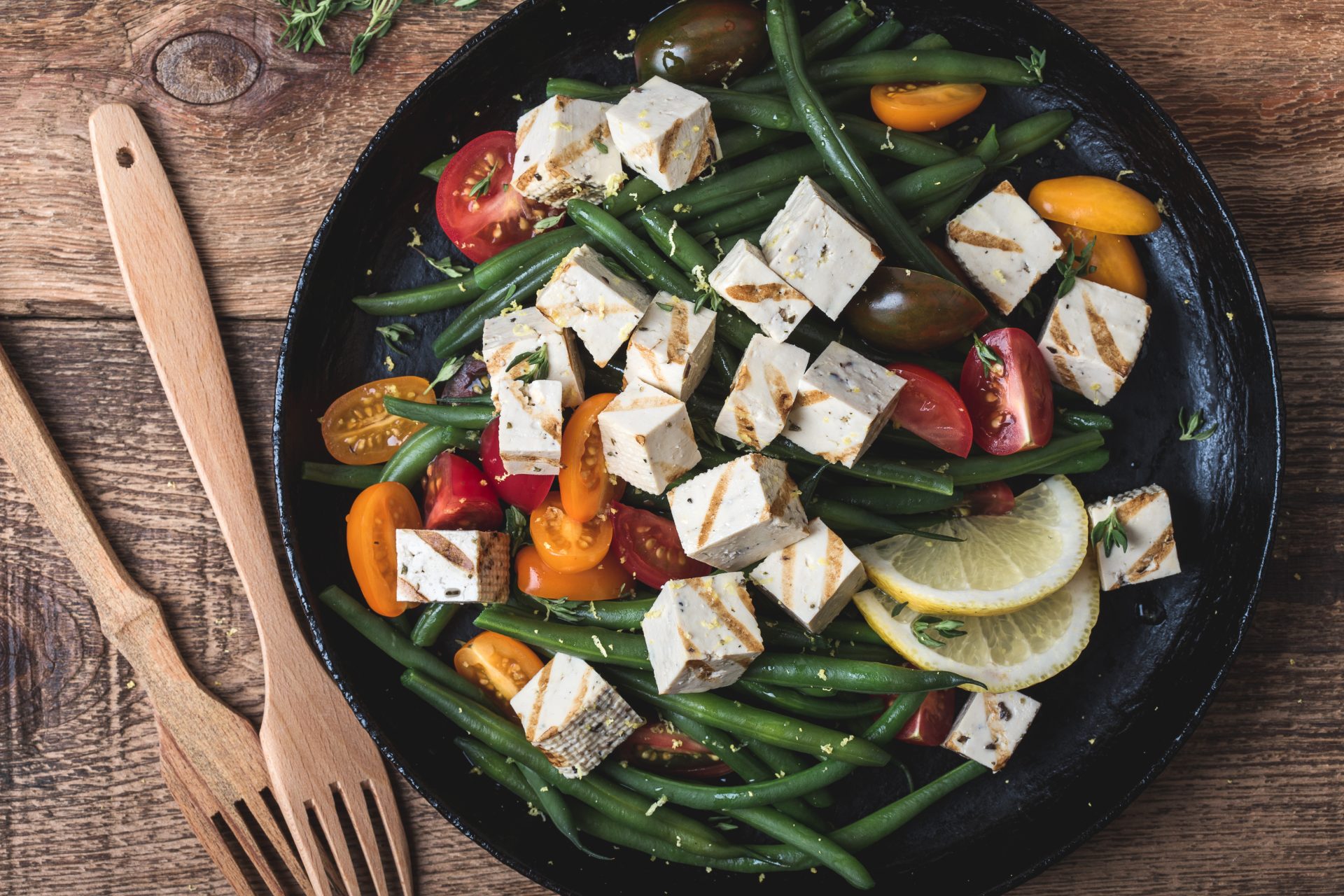Gut health supplements can be mind-boggling, but there’s one amino acid that could help IBS symptoms.
The fundamental cornerstones of good gut health are fibrous diets, fermented foods, a cup of coffee and regular movement. But even those of us who have those things nailed – especially the coffee intake – often find they still have irritated digestive systems.
In the (online) wellness world, there are whispers of a solution: L-glutamine. But is there any evidence that this is the missing puzzle piece to healthier guts?
What is L-glutamine?
L-glutamine is a type of amino acid, the building blocks of protein. Amino acids are divided into two groups: those that are made naturally in the body and are ‘non-essential’, meaning you don’t need to ingest them; and those that are ‘essential’ to have in your diet as the body can’t produce them itself.
You may also like
Gut health and bloating: are there any supplements to reduce bloating and inflammation?
“L-glutamine is non-essential, so the body will normally produce an adequate amount of it for overall health, but you can also acquire it from foods like fish, spinach, cabbage, chicken and lentils,” explains Hussain Abdeh, superintendent pharmacist at Medicine Direct.
The body produces it because it needs L-glutamine for a host of functions, from being a “fuel source” for immune cells to supporting the barrier of your gut lining. That latter purpose is why L-glutamine has been in the spotlight as of late. Recent research has started digging into L-glutamine as a gut-supporting supplement – and with promising results.

How does L-glutamine support the gut?
According to a 2021 paper, there are three main uses of L-glutamine in the gut. It sustains the balance of the gut microbiome, it increases the integrity of the intestinal lining, and it’s thought to reduce inflammation in the gut, which can lead to irritation.
Because of L-glutamine’s role in repairing tissues, any form of stress on the body (including physical injury or digestive overwhelm from food, alcohol, IBS or other irritants) can deplete glutamine stores at a faster rate than they can be restored.
“The intestinal lining is left even more vulnerable to cumulative damage,” according to researchers. The paper also reported that L-glutamine can be considered ‘conditionally essential’ when in high demand during intense periods of stress either from illness, disease or lifestyle stress, meaning that adequate intake through nutrition is needed to top up the amino acid levels.
You may also like
Is coffee good for your gut? A new study shows the beneficial impact on gut bacteria
“In this situation, a simple, inexpensive and accessible nutritional supplement such as glutamine may offset some of the damage, both structurally and functionally,” the paper’s authors concluded.
While there’s no conclusive evidence on L-glutamine improving gut health overall, Abdeh agrees that there’s enough research to support the theory that it may bebeneficial for those with IBS or digestive issues. “L-glutamine can play a part in staving off gut inflammation and infection as it helps to boost immune cell activity within the gut. It also helps to reduce intestinal spasms thanks to its energy-producing properties,” he said.
Camilla Gray, nutritionist at probiotic brand Optibac, adds: “One of the important functions of the gut is to prevent bacteria and toxins from getting into circulation in our body as this can lead to different undesirable conditions. As L-glutamine helps with reducing inflammatory responses, it can aid gut health by lessening irritation caused by inflammation.”

How to take L-glutamine for gut health
As L-glutamine is found in high-protein foods, it’s totally possible to consume enough through your diet without the need for supplements. “It can be highly beneficial to eat foods that are high in this amino acid. The likes of fish, poultry, dairy and green vegetables should be incorporated regularly into a healthy diet anyway, so it should not be hard to take in additional levels of L-glutamine through the food you eat,” Abdeh says.
The recommended intake of the amino acid for gut health is around 5g. To put that in context, 100g of beef contains around 1.2g of L-glutamine, while 100g of tofu contains 0.6g of the amino acid. Consuming extra protein sources could be beneficial during times of digestive discomfort (as long as it’s not in place of fibre or veggies).
“If you suffer from IBS and are looking to improve your gut lining integrity and supplements are deemed suitable for you, you could take an additional one to five grams of L-glutamine supplements per day in divided doses, at least 30 minutes before meals or before bedtime,” says Gray.
“If you suffer from kidney disease or Reye’s syndrome, L-glutamine is best avoided. And everyone should speak to their healthcare provider before taking any new supplements,” she adds. More research may be needed, but watch this space – L-glutamine sounds like a promising way to look after your gut health.
For more gut health tips and other science-back wellness articles, sign up to the Strong Woman Training Club.
Images: Getty
Source: Read Full Article